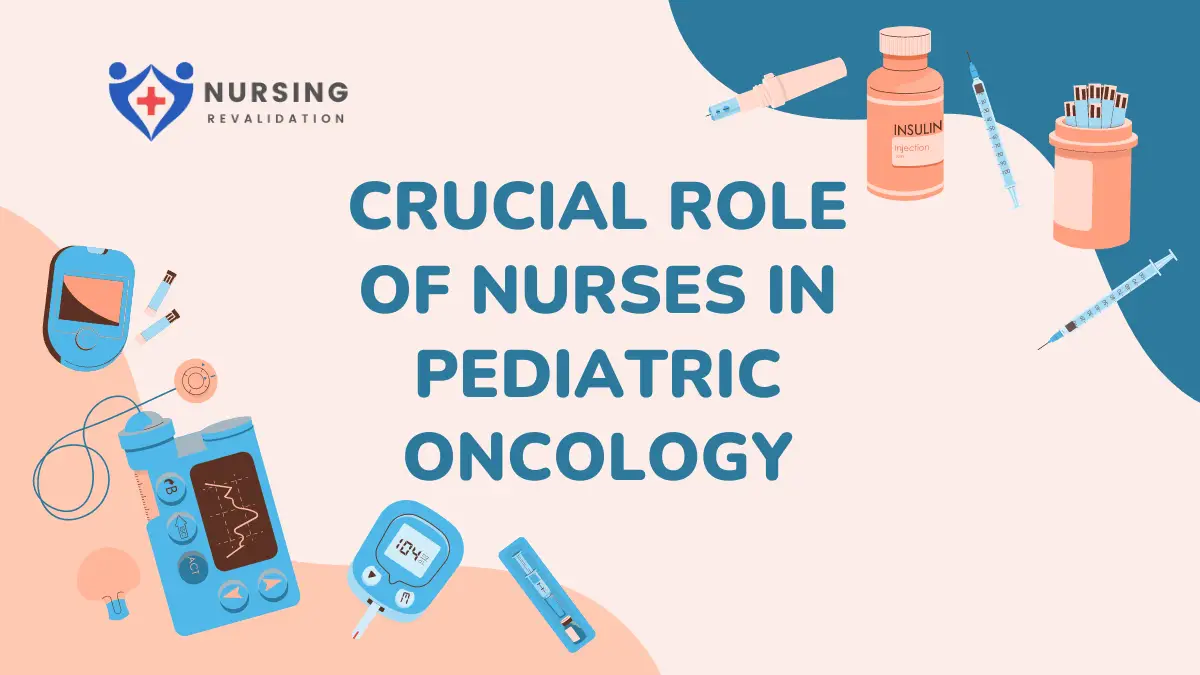Pediatric oncology, the branch of medicine focused on the diagnosis and treatment of cancer in children, presents unique challenges and demands a specialized approach. Amidst the complexities of this field, nurses emerge as unsung heroes, playing multifaceted roles that extend far beyond traditional caregiving. In this comprehensive exploration, we delve into the pivotal role nurses play in pediatric oncology, shedding light on their invaluable contributions, challenges they face, and the profound impact they have on the lives of young patients and their families.
Understanding Pediatric Oncology Nursing:
A Holistic Approach In the realm of pediatric oncology, nurses embody the essence of holistic care, addressing not only the physical but also the emotional, psychological, and social needs of young patients and their families. From administering chemotherapy and managing symptoms to providing emotional support and facilitating coping mechanisms, pediatric oncology nurses serve as compassionate guardians throughout the arduous journey of cancer treatment.
Table: Role of Nurses in Pediatric Oncology
| Role of Nurses in Pediatric Oncology | Description |
|---|---|
| Holistic Patient Care | Administering treatments, monitoring vital signs, managing side effects, and collaborating with other healthcare professionals. |
| Emotional Support for Patients and Families | Providing a supportive presence, lending a compassionate ear, and offering guidance to navigate emotional challenges. |
| Education and Advocacy | Empowering patients and families with knowledge about treatment options and advocating for their needs within the healthcare system. |
The Crucial Responsibilities of Pediatric Oncology Nurses
Holistic Patient Care: Pediatric oncology nurses provide comprehensive care that encompasses the entirety of a child’s cancer journey. This includes administering treatments, monitoring vital signs, managing side effects, and collaborating with other healthcare professionals to ensure optimal patient outcomes.
Emotional Support for Patients and Families: Coping with childhood cancer is an emotionally taxing experience for both patients and their families. Pediatric oncology nurses offer a supportive presence, lending a compassionate ear, and providing guidance to navigate the myriad of emotions that accompany a cancer diagnosis.
Education and Advocacy: Nurses serve as educators, empowering patients and families with the knowledge needed to make informed decisions about treatment options and self-care practices. Additionally, they advocate tirelessly for their patients, ensuring their voices are heard and their needs are met within the healthcare system.
Challenges Faced by Pediatric Oncology Nurses
Despite their unwavering dedication, pediatric oncology nurses encounter numerous challenges in their line of work. These challenges include emotional burnout, witnessing the suffering of young patients, navigating complex treatment regimens, and balancing the demands of caregiving with personal well-being. However, it is their resilience and unwavering commitment to their patients that enable them to overcome these obstacles and continue providing exceptional care.
The Impact of Pediatric Oncology Nursing on Patient Outcomes
Research consistently demonstrates the positive correlation between the involvement of pediatric oncology nurses and improved patient outcomes. Studies have shown that specialized nursing care leads to reduced hospital readmissions, better pain management, and enhanced quality of life for pediatric cancer patients. Moreover, the emotional support and continuity of care provided by nurses contribute significantly to the overall well-being of patients and their families.
Conclusion:
In the intricate tapestry of pediatric oncology, nurses emerge as beacons of hope and healing, embodying the essence of compassion, expertise, and resilience. Their multifaceted roles encompass not only clinical care but also emotional support, education, and advocacy, making them indispensable members of the healthcare team. As we navigate the complexities of childhood cancer, let us recognize and honor the invaluable contributions of pediatric oncology nurses in nurturing hope and healing for young patients and their families.

